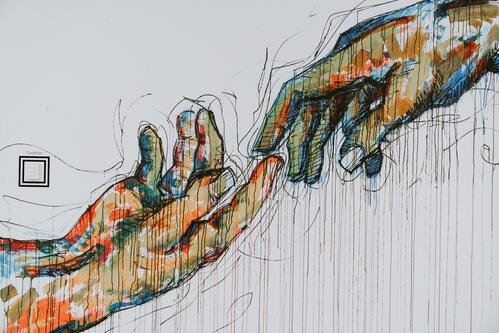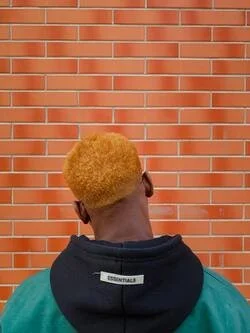Am I trying to be too helpful?
Trying to be too helpful:
Confession: I am a people pleaser (a common trait in codependency). It feels like I grew up with “help others first” as my default setting. I now realize that it wasn’t necessarily just something I was born with, but was something that was fostered in my interactions, my family, my societal expectations.
As I got older, and felt the effects (exhaustion, depression, low self worth), I began to examine more closely my pattern of trying to be too helpful. And I’ve started to unweave the narratives, learn how to help others without overextending myself, and to find my way back to myself.
You may be wondering if you are trying to be too helpful. Perhaps you’ve internalized that being a martyr is the way to go. Perhaps it’s really hard for you to let go of control. Perhaps, like me, you’re a people pleaser. No matter what the reason, it can be helpful to untangle your motivations behind trying to be too helpful, and to decide if that’s the best for you and your relationships.
It can be the path to more solid relationships, and to feeling more solid in yourself.
What do I mean by “trying to be too helpful”?
To be honest, I don’t love using labels of “too much” of a personality trait or tendency.
When I’m using the phrase “trying to be too helpful,” I have a couple things in mind that are worth taking a look at:
Giving help when someone doesn’t ask for it or doesn’t want it. I know it can be hard to watch others struggle, especially loved ones. I get it. That said, people ultimately have the right to make choices about their own lives (to be clear: I’m not referring to when people are in life threatening danger, where intervention can become necessary).
Giving so much that it is regularly having negative consequences for you. Do you find that you rarely take care of yourself? Do you find that you are exhausted from giving so much to others? Do you feel worn down, depressed, anxious about how others will react if you don’t assume the role of helper? If so, it’s definitely worth taking a look at your patterns, and if there is space for change.
I want to be clear that this will look different from person to person. Culture, societal roles (gender, race, disability status, etc) can impact how helping others fits into your life (for better or for worse).
There is also general variance from person to person. I want to clearly remind you that if you find that you have less capacity to give to others as people you know, that does not make you wrong. It can be easy to forget that there isn’t one prescription for everyone’s life, the way we get messages in society.
I want to remind you that you are uniquely you, and you get to decide what is the right path for you, regardless of how that compares to others.
Why do I always end up trying to be too helpful?
There can be a few reasons why you may be trying to be too helpful. When I’m talking with people who are questioning why they are trying to be too helpful, I like to ask what benefits they are getting.
It could look like positive reinforcement from others.
It could look like feeling that you are less likely to be rejected by others.
It could be that you’ve internalized the message that by abandoning yourself, others won’t abandon you.
It could look like feeling as if you have a sense of control in a world where we often have less control than we wish for.
It could be that you grew up in a space where taking care of your caretakers seemed like the only way to avoid disaster in your family.
It also may be a part of how you earn money (said the therapist writing this blog…).
None of these reasons are bad, or make you a bad person! That said, it is worth examining if these benefits are still worth it and if trying to be too helpful is actually getting your needs met.
The goal may not be to let go of helping others; it may be finding a better balance around when and how to help others.
What are disadvantages of trying to be too helpful?
Trying to be too helpful can leave you feeling lost, exhausted and lonely. It can lead to relationships that don’t feel genuine.
You may find that you are feeling depressed, or anxious when not helping others.
Sometimes giving too much of ourselves can actually manifest in physical pain in our bodies.
On the flip side, trying to help too much can stop people from learning how to help themselves. I feel it’s important to bring up the word balance here; everyone needs help from time to time. That said, sometimes we are trying to “save” someone- from addiction, from emotional pain, from bad situations- and people do need to want to and implement change for themselves.
Honestly, sometimes trying to be too helpful can harm relationships, and leave others frustrated and resentful.
Am I saying that you should never help? No. Am I saying it’s worth looking at how you are helping, if others are asking for/receptive to your help, and what you actually have control over? Yes
What do I do if I’m trying to be too helpful?
If you find you have a pattern of trying to be too helpful, start being honest with yourself. Look at what role helping others is playing in your life. It may be helpful to journal, talk to friends, or even talk to a therapist to gain some perspective.
Next, take the time to check in with yourself. When you find yourself drawn to helping others, take a moment to notice what’s going on with that urge. If you can’t figure out the motivation, you can do a quick body scan to notice any sensations; are you feeling tightness anywhere? Do you feel light? Do you feel connected? Are you able to connect to your body? Start simply by noticing. Do your best to let go of any judgment that’s coming up.
As you get more practiced at checking in, you can start deciding if you want to help. Helping others can be a beautiful quality. That said, helping out of a sense of obligation, or a fear that being helpful is the only way to prove you have worth, leads to exhaustion, overwhelm, and unfulfilling relationships.
Remember that you have worth beyond your desire to help. It may take time to shift expectations of others, especially if you grew up in a family where you were trained to neglect your needs for others. Trying to be too helpful may have earned you praise in the past, but I know that there is something freeing in knowing that you are cared for beyond helping others.
And if you find that you are stepping in to take control in hard situations, I want to gently remind you that ultimately, each person gets to make the decisions that are right for them. I know that it’s really hard to watch loved ones make choices that you don’t agree with. You can offer input, but at the end of the day it is up to them to make their own choices.
If you find yourself wanting to step in, it’s worth asking if the help was requested, or if it is your urge alone. If it’s your urge, it may be time to take a step back. There’s no need to judge that urge; many people have it. You can make different decisions, however.
Final thoughts on trying to be too helpful
If you have patterns that lead to trying to be too helpful, you’re not alone. It’s not strange that you want to be loved, accepted, praised for the help that you offer. It’s admirable if you are trying to stop the suffering of others. It’s normal to hate not feeling a sense of control.
And it’s worth looking at those patterns, to see if and how they are serving you now.
It’s OK to take small steps to make change. Change is hard. Unlearning patterns is hard. I believe you can do it. You are worth it.
Kate O’Brien, LCAT
Kate is a licensed therapist in New York. She works with people who grew up in challenging families, who have experienced emotional trauma or neglect, who experience self-abandonment and people pleasing, and grief. Learn more here or schedule a consult call here if interested in working with her.






